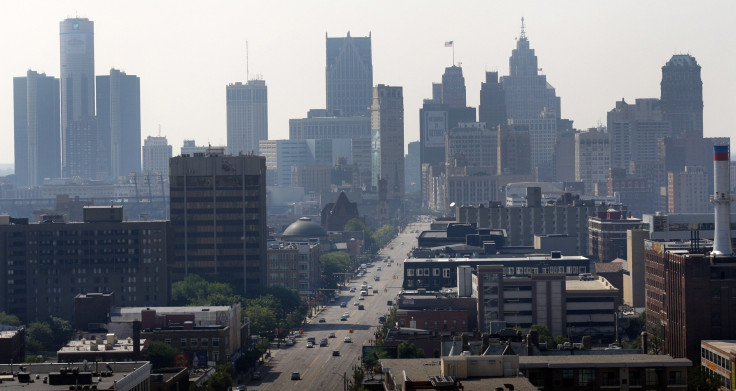Detroit Pension Fund: Criminal Probe As Former Board Trustees Defend Giving Away $2 Billion Of Pension Money Over 20 Years

The road to Detroit's bankruptcy was paved with scandals, demagoguery and incompetence, but the extent of one kind of malfeasance is only now coming to light: the billions the city intentionally overpaid pensioners.
Payments by the Detroit Pension Board, made over several decades but never disclosed publicly, were far in excess of the city’s obligations and appear to amount to about $2 billion, according to outside actuary Joseph Esuchanko.
However, the latest data relates only to the period from 1985 to 2008; data from before 1985 is unavailable and does not include the second pension fund that was used for police officers and firefighters, which also made excess payments, the New York Times reported Friday.
The payments took the form of retirement "bonuses," supplements to current workers, and cash to families of deceased workers, who were not eligible to collect.
Detroit Auditor General Mark Lockridge, in a report released Thursday, found that trustees of the fund did not discriminate; most people received the payments. And while the payments were widely known, it had become difficult for members of the board to outvote the labor union trustees, who were a majority on the board.
The report also said that a criminal investigation ordered by Detroit Emergency Manager Kevyn Orr was still working to identify related fraud, malfeasance or corruption.
Given that the fund appears to have been mismanaged for nearly 30 years, Orr may use the findings of the report by the city watchdogs to force current city workers to change to a 401(k) plan, remove sitting pension board trustees, and possibly replace all the trustees with one person to run the fund.
With the Motor City now some $18 billion in debt, it is becoming more apparent that the mismanaged pension fund may have been the final blow that drove the once-prosperous city to default and bankruptcy. Now pensioners are facing cuts and freezes on their pensions, which has sparked protests across the city.
Past board members defend the overpayments.
“Things were always bad for employees,” said former pension board member Sandra Studzinki. “It was a way to make up for lots of the years that there were no pension increases.”
“It was appropriate for retirees to benefit from market upturns because they had paid into the pension fund, so their own contributions had generated part of the investment gains,” said board spokesperson Tina Bassett. “People were having a hard time, living hand-to-mouth, and we thought we would give them some extra.”
© Copyright IBTimes 2024. All rights reserved.












